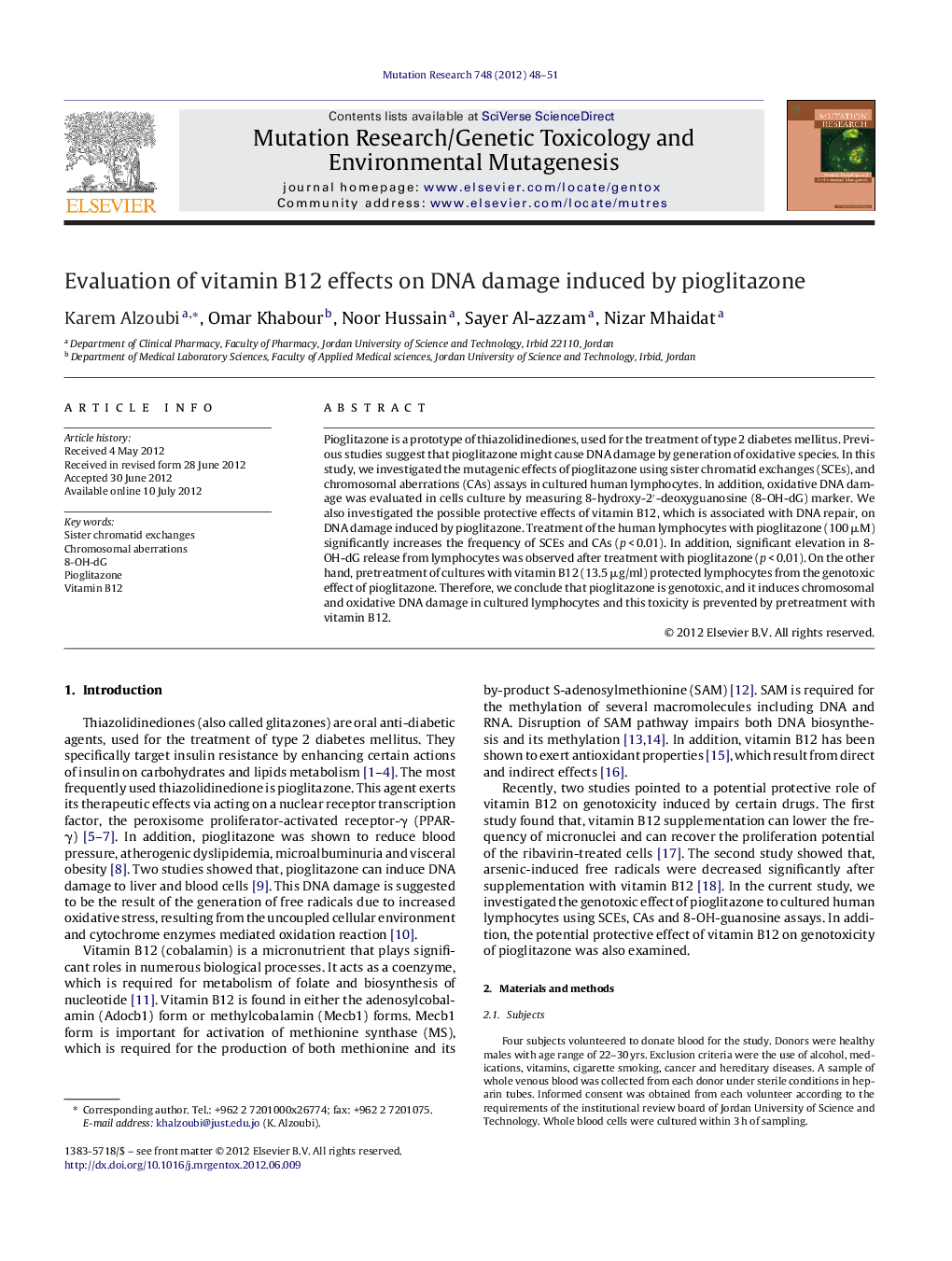| Article ID | Journal | Published Year | Pages | File Type |
|---|---|---|---|---|
| 2148164 | Mutation Research/Genetic Toxicology and Environmental Mutagenesis | 2012 | 4 Pages |
Pioglitazone is a prototype of thiazolidinediones, used for the treatment of type 2 diabetes mellitus. Previous studies suggest that pioglitazone might cause DNA damage by generation of oxidative species. In this study, we investigated the mutagenic effects of pioglitazone using sister chromatid exchanges (SCEs), and chromosomal aberrations (CAs) assays in cultured human lymphocytes. In addition, oxidative DNA damage was evaluated in cells culture by measuring 8-hydroxy-2′-deoxyguanosine (8-OH-dG) marker. We also investigated the possible protective effects of vitamin B12, which is associated with DNA repair, on DNA damage induced by pioglitazone. Treatment of the human lymphocytes with pioglitazone (100 μM) significantly increases the frequency of SCEs and CAs (p < 0.01). In addition, significant elevation in 8-OH-dG release from lymphocytes was observed after treatment with pioglitazone (p < 0.01). On the other hand, pretreatment of cultures with vitamin B12 (13.5 μg/ml) protected lymphocytes from the genotoxic effect of pioglitazone. Therefore, we conclude that pioglitazone is genotoxic, and it induces chromosomal and oxidative DNA damage in cultured lymphocytes and this toxicity is prevented by pretreatment with vitamin B12.
► Treatment of lymphocytes with pioglitazone increases the frequency of SCEs and CAs. ► Elevation in 8-OH-dG from lymphocytes was observed after treatment with pioglitazone. ► Vitamin B12 treatment protects lymphocytes from the genotoxic effect of pioglitazone.
